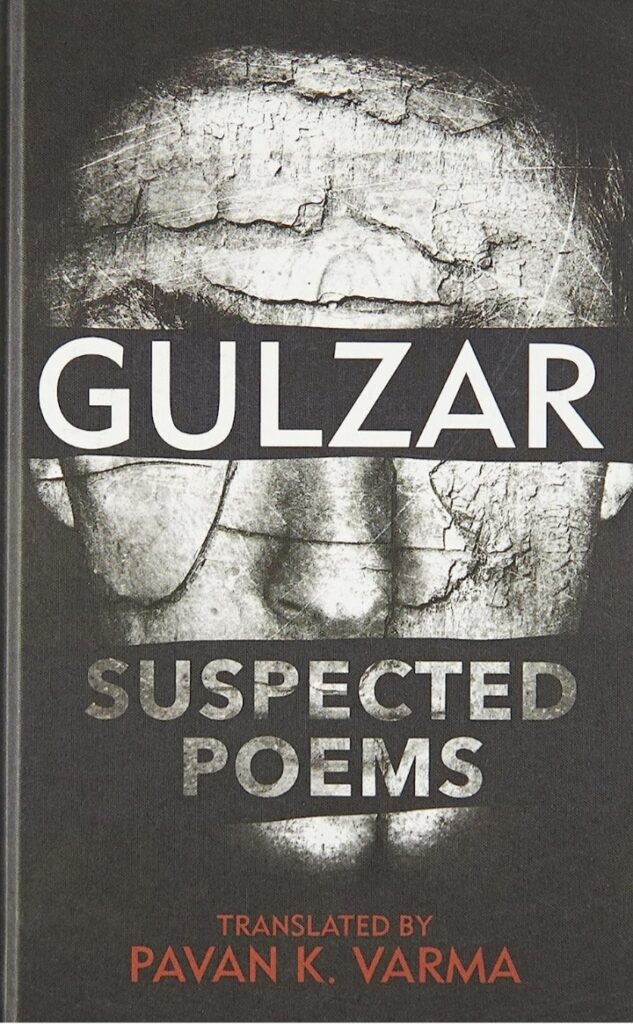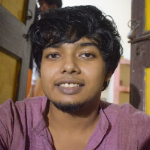A BOOK REVIEW BY SHUBHA SUNDAR GHOSH
One might wonder who Gulzar is. A lyricist? A poet? An author? A film-maker? Well, it may seem quite a hefty task to define him in accordance to a single compartment of the creative realm but Suspected Poems have put him under a different limelight; as a protest poet. Suspected Poems translated by Pavan K. Varma into English, have garnered Gulzar an audience of a different spectrum than the one who evaluated him only as a romantic lyricist. Interestingly it is through this compilation that Gulzar directly talked about the social issues of the masses. He becomes utterly political and through the poems radiated a flicker of deep protest against the injustice that is on rampage in the country and around the world. Strong comments have been made by him against the powers of political spheres who are the masters of atrocities.
If he knew that on his death
His family would get two lakhs
That is death is priced so high
He would have died for himself
In the poem TWO LAKH RUPEES, Gulzar poignantly portrays the sheer absurdity of how deaths are politicized in this country. He pens the question and hopelessness of the ordinary people whose deaths are unrecorded, unrecognized or mostly swept under the flags of political parties. The actuality that this poem points towards is scary.
In another poem of his, ARE THESE BIRDS OR BANNERS? he writes:
Are these birds, or banners
Or black flags?
These crows sitting on the city’s electric wires
Have come and occupied all the streets.
Are they grieving over someone passing away
Or are they on satyagraha
On the arrival of someone?
Gulzar delves into the poetry of the ordinary to forecast what is happening at the base of reality. This poem might pull a chord of reminiscence about the black ravens in Hitchcock’s The Birds. Nevertheless, here the crows stand for the outrage and angst of the people who are either standing for their rights or mourning silently at the motionless body of democracy. ‘Satyagraha‘ of Gandhi was a body of mass movement which meant clinging to the truth. The crows wait with indignant eyes to tear apart the mask of falsehood and reveal the true picture of the present society.
When lines were only etched on the palm
They told us our destiny
We kept them closed in a fist
When they are drawn on the ground
They cut across oceans, countries, homes and hearths.
Lines remain alive
Lines breathe
Lines lash at feet that dare to cross them
Lines slither;
When lines slither they shed their skin
Like snakes do.
LINES is another poem that deliberately points towards the border issues of countries and regions. The truffle for land and property is an age-old story of human ‘civilisation’. People on the whims of leaders have killed other people for acquiring regions. Gulzar blames this very structure of ‘lines’ that breathes to divide unity. Maps or borders are in the minds of the people. On the surface of the Earth, one cannot differentiate one region from the other. No such division exists anywhere. It’s the minds of the people that divide brutally. Gulzar subtly touches on the deep and trembling issues of partition with this poem. Partition have wrecked homes, communities, identities, lives, histories, and many more. One cannot deny the ways these lines have affected our lives bringing devastation along with it.
For no particular reason
He had the blue cow tattooed on his right shoulder
He would have been killed in the riots yesterday
But they were good people —
Seeing a cow, they let him go.
When the country is haunted by a spectre of communalism, this fearless poem comes from Gulzar is indeed the terrifying reality. It showcases the fanaticism of people about a certain icon and the brainwashing capabilities of ideologies that drive people into a frenzy. The poem remains no more a poem but the real condition of a space like India in recent times.
YUDHISHTIR is another poem that serves as a direct message to the authorities in any form or structure. It’s absolutely beautiful how Gulzar pulls close the fabric of Mahakavya to weave his poetry. He refers to a story of Lakshagriha from Mahabharata and at point blank talks to Yudhishtir as well as to us. He writes “There were five and female singer Yudhishthir had invited all of them……. In the darkness of the night, the five Pandavas then left……The Kauravas found all six bodies. How prescient Yudhishtir was! Yes, Yudhishtir yes this is what happens in politics even now except for thanking each of the subjects is but a number written down when desired erased when not required!”. Gulzar shows how power treats its valuable people throughout the ages. He calls back the incidents and questions certain moments with a sharp tongue that poses concrete abominations for the ruling class. The shayar strips off every poetic particle to demonstrate that the history of the world has been the history of struggle between the ruling class and their subjects where poets like him stand with dignified steps to question and uncover the truth from the disguise of deceit and facade.
Overall, Suspected Poems seemed like a compilation of protest poetry. Gulzar comes down and sees the plight of the common people and transforms his poetic sensibilities into the language of the ordinary. Even though the poems are originally written in Urdu yet the English translations serve the purpose. The translation could be a bit more stringent and rigid. The handling of the poems by the translator felt a little off. The choice of words when compared with the original seemed as if it required a bit more precision. The translator could have cared a little more. Nevertheless, the meaning and the context are transferred without any hindrance. Reading Gulzar in English in his dire ferociousness could have only been possible because of a translation.
Also, read Claiming The Sky, a book review by Oudarjya Pramanick, published in The Antonym:
Follow The Antonym’s Facebook page and Instagram account for more content and exciting updates.



























0 Comments